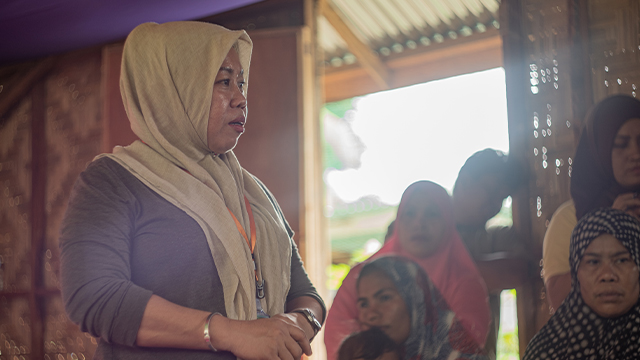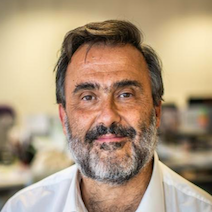

This opinion piece was written for the global women’s rights in crisis campaign #IMatter to commemorate International Women Human Rights Defenders Day. The launch will kick start an amazing drive to build and strengthen an intersectional movement that works with women and girls in crisis and post crisis contexts, recognizing the universality of the struggle’s women experience. Details here.
Women across the world are risking their lives each day to build peace and defend their lands, communities, and freedoms. In 2018, 321 defenders in 27 countries, 38 of whom are women, were targeted and killed for their work – the highest number ever on record – according to data collected by Front Line Defenders. Even this barely hints at the ocean of abuse and discrimination that women defenders and peace builders are forced to overcome each day. How the patriarchy that underpins the worst excesses of our extractive and unequal economic system reacts to being challenged.
These women need our solidarity. They are asking for it. It matters. In Colombia, I’ve met leaders of the Wayuu Women’s Force in La Guajira whose defenders have to carry mobiles for “protection alarm” and wear bullet-proof vests. They are followed, filmed, trolled, abused, intimidated, imprisoned, assaulted; where the constant typical threats – “Your daughters look pretty; shut up or something will happen to them” – is a deadly serious one. (READ: Not just a joke: The social cost of Duterte's rape remarks)
The backlash is worse now than ever. It is deliberate and systematic. Women defenders are often the first to be targeted. They face different and added threats than the men who support them, like smear campaigns and sexual assaults. They can face disrepute even within their own societies for not conforming to stereotypes. They are made more vulnerable where they lack organizational support.
Poverty has a female face. Women shoulder almost all of the unpaid care work and are hit worst when decent public services are hard to access. In many countries, women have fewer rights to land and safe jobs. They are left behind when men leave to fight or flee conscription. Women’s groups struggle with donors preferring to fund projects rather than salaries and running costs.
Women and girls tend to organize themselves from Day One of a crisis or conflict, mobilizing help within their communities and resolving matters. They are the ones who keep their families together and recover their societies. That’s why Oxfam is giving priority to local women’s groups when we forge our humanitarian partnerships. (READ: Robredo: Respect for women, gender equality begin at home)
However, despite the fact that its widely accepted that women and girls play a vital, often defining role in defending human rights and building peace, they have been frozen out of official peace negotiations for years. When women are able to participate meaningfully, these deals are 35% more likely to be successful and durable. In October 2000, UN member states committed to uphold the rights of women during war and peace. There have been some improvements but there is still no formal mechanism to hold states to account.
Women activists are not victims without political agency. They are resourceful, independent, assertive, brave and successful. (READ: Leticia Ramos-Shahani: The woman who competed with the best)
In Sudan, for example, women helped to lead the protests that brought down the old regime and the country has just appointed a woman, Neemat Abdullah, as chief justice – a first for the Arab world. Ethiopia has a new female president. In Lebanon and Iraq, women are demanding change and that they are recognized now as equals to men in the future governance of their country. Sweden and Canada now have an explicitly feminist foreign policy.
In the Philippines, women continue to be at the forefront of supporting the peace process in Mindanao and the transition towards what is now the Bangsamoro Autonomous Region of Muslim Mindanao. Women peace advocates consolidated a Bangsamoro Women’s Agenda, developed through community consultation, which includes women’s participation in the newly-established Bangsamoro Transition Authority, creating inroads towards the creation of a women’s political party, and women leaders running for office in 2022. (READ: Who are the women in the Bangsamoro peace process?)
Elsewhere the picture is bleaker. There is violence and impunity when women are isolated. It thrives when we accept harmful social norms as “just the way it goes,” when women are marginalized from the decisions that affect them.
We can do more. Humankind has inexhaustible supplies of empathy – it is free, affirming, and effective in ways many of us who are not on the frontlines cannot imagine. Women leaders tell us that international solidarity can shine a light on their struggles and is better than a bullet-proof vest. We must stand beside and behind these women in their tireless pursuit of peace and equality, because they matter. – Rappler.com
José María Vera is the interim Executive Director of Oxfam International. Oxfam is a confederation of 19 organizations working with thousands of partners, allies, and communities in more than 90 countries to save and protect lives in emergencies, help people rebuild their livelihoods, and campaign for genuine and lasting change.